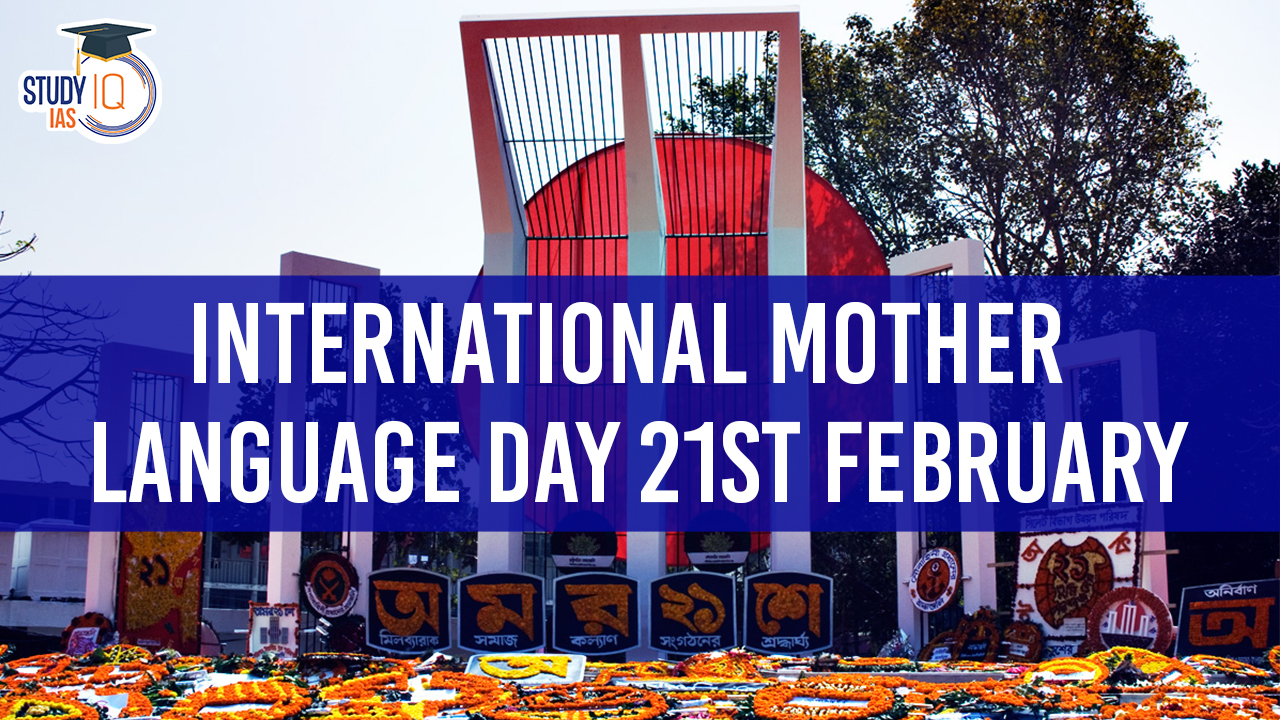Table of Contents
International Mother Language Day 2024
Language serves as the cornerstone of communication, forming the very basis of our interactions and understanding of the world. Each language embodies a unique cultural identity and heritage, reflecting the rich tapestry of human diversity. International Mother Language Day, observed annually on February 21st, underscores the importance of preserving and promoting linguistic diversity while acknowledging the tragic sacrifices made to defend languages worldwide.
International Mother Language Day Date
International Mother Language Day is commemorated on February 21st each year. In 2024, this significant day falls on a Wednesday, providing an opportunity for global reflection and celebration of linguistic heritage.
International Mother Language Day 2024 Theme
The theme for International Mother Language Day 2024 is “Multilingual education is a pillar of intergenerational learning”. This theme highlights the importance of multilingual education and languages in inclusive education and preserving indigenous languages.
The United Nations (UN) says that multilingual and multicultural societies thrive when they preserve their languages. The UN also says that linguistic diversity is under increasing threat as more languages vanish.
International Mother Language Day Overview
| Aspect | Details |
| Date | February 21st |
| Origin | Bangladesh, commemorates the 1952 Language Movement where four students were martyred. |
| Establishment | Proclaimed by UNESCO in November 1999, later endorsed by the United Nations General Assembly. |
| Purpose | Promote linguistic and cultural diversity.
Raise awareness about linguistic rights. |
| Theme (2024) | “Multilingual education – a pillar of learning and intergenerational understanding.” |
We’re now on WhatsApp. Click to Join
History of International Mother Language Day
The genesis of International Mother Language Day traces back to the historical events of February 21, 1952, in Bangladesh. On this fateful day, four students courageously advocated for the recognition of Bengali as the official language, challenging linguistic marginalization. Tragically, their peaceful protests resulted in their untimely deaths, igniting a movement that reverberated worldwide. In November 1999, UNESCO, recognizing the profound significance of linguistic rights and cultural preservation, proclaimed International Mother Language Day. This proclamation was subsequently endorsed by the United Nations General Assembly, affirming the global commitment to linguistic diversity and inclusivity.
Significance of International Mother Language Day
International Mother Language Day holds immense significance in promoting linguistic diversity, preserving cultural heritage, and fostering global understanding. Here are some key aspects of its significance:
- Preservation of Linguistic Diversity: International Mother Language Day serves as a platform to raise awareness about the importance of preserving linguistic diversity. Languages are not just tools for communication but repositories of cultural knowledge, traditions, and identities. By celebrating and preserving mother languages, we ensure the survival of unique cultural expressions and worldviews.
- Recognition of Linguistic Rights: The observance of this day highlights the fundamental right of individuals and communities to use their mother language without discrimination. It underscores the importance of linguistic equality and promotes efforts to protect minority languages from extinction.
- Commemoration of Sacrifices: The origins of International Mother Language Day trace back to the sacrifices made by language activists in Bangladesh in 1952. Four students gave their lives advocating for the recognition of Bengali as an official language, sparking a movement that ultimately led to the acknowledgment of linguistic rights worldwide. This day commemorates their bravery and serves as a reminder of the struggles endured to protect linguistic diversity.
- Promotion of Multilingualism in Education: The theme of each International Mother Language Day emphasizes the importance of multilingual education. Multilingualism not only enhances cognitive abilities but also promotes inclusivity and intercultural understanding. By incorporating mother languages into educational curricula, students gain a stronger connection to their cultural roots and develop a deeper appreciation for linguistic diversity.
- Global Unity and Solidarity: Language is a powerful tool for building bridges between individuals and communities. International Mother Language Day fosters a sense of global unity and solidarity by emphasizing the importance of respecting and celebrating all languages, regardless of their size or prominence. It promotes dialogue, cooperation, and mutual understanding among people of different linguistic backgrounds.
Overall, International Mother Language Day serves as a reminder of the intrinsic value of language in shaping our identities, cultures, and societies. It encourages us to embrace linguistic diversity as a source of strength and enrichment, paving the way for a more inclusive and harmonious world.
International Mother Language Day UPSC
As we commemorate International Mother Language Day 2024, let us reaffirm our commitment to safeguarding linguistic diversity and promoting multilingualism as a catalyst for global harmony and understanding. By embracing the richness of our linguistic heritage, we can cultivate inclusive societies where every voice is heard, respected, and celebrated. Together, let us embark on a journey towards a more inclusive and linguistically vibrant world, where the beauty of diversity serves as a source of unity and strength.


 Indus Water Treaty 1960 Suspended by Ind...
Indus Water Treaty 1960 Suspended by Ind...
 5 Years of SVAMITVA Scheme and Its Benef...
5 Years of SVAMITVA Scheme and Its Benef...
 Places in News for UPSC 2025 for Prelims...
Places in News for UPSC 2025 for Prelims...





















